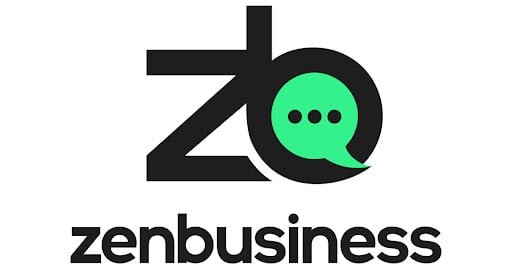Starting a business can be an exhilarating and fulfilling experience, but business registration might appear intimidating.
This blog provides an easy-to-follow guide on how to register a business. Our guide will help you navigate the process with confidence and ease in seven simple steps.
If you find the process daunting, we’ve got you covered. We’ve also compiled a list of the best business registration services, like ZenBusiness, that can take care of the job for you.
How to Register a Business in 7 Simple Steps
Business registration is a straightforward process if you clearly understand what needs to be done. By following these seven steps, you can register a business quickly.
Step 1: Choose Your Business Structure
Selecting a suitable business structure for your enterprise relies on your business and your growth prospects. Let’s delve deeper into each of them and their operational mechanisms.
If you plan to register a business, remember it’s only required if you choose a business structure that requires incorporation, such as the ones listed below.
Sole Proprietorship
In it, there’s no distinction between you and your business. You must pay income tax on them. Your possessions may settle the company’s debts or meet expenses that arise due to its activities.
General Partnership
A business structure owned and managed by two or more individuals. This is like a sole proprietorship in terms of the partners being fully responsible for the business’s actions. The partners are personally liable for covering debts, taxes, and legal obligations that may arise.
Limited Partnership
A limited partnership involves a general partner who manages the business and bears complete responsibility for any debts or losses. It provides financial investment without participating in the daily operations, and their liability is restricted to the amount they’ve invested in the company.
Limited Liability Partnership
An LLP is a type of company where all partners hold joint ownership. The partners’ liability for the company’s debts and actions is proportional to their initial investment. This means they cannot lose more than they’ve invested.
Limited Liability Company
The LLC, establishes a legal distinction between a business and its owners. An LLC is popular for small business owners due to the protection for personal assets from business liabilities, along with potential tax advantages.
C Corporation
C Corporations are typically large organizations with several investors and shareholders. The C Corporation ensures that the assets and liabilities of the owners and the business are separated.
>> Start Using ZenBusiness >>
Step 2: Register Your Business Name
There are three options for naming your business, which include registering a legal entity name or a trademark, or registering a legal name and operating under a different one.
Different states have varying naming rules, so check the requirements for your preferred state of registration.
Entity Name
When starting a business, register a legal entity name with your state. This name is unique to your business and helps the state identify your company.
Different states may have specific guidelines regarding suffixes and the type of business reflected in the name. By registering a legal entity name, ensure that your business is protected from conflicts with other businesses using the same name.
Trademark
A trademark safeguard your business name on a national level. Once your name is trademarked, no other business in the US can use the same name.
Search the official US trademark database before settling on a name to ensure it’s not trademarked. This is crucial as infringing on someone else’s trademark is a criminal offense and may lead to legal consequences.
Doing Business As
You can choose to register a business with one name and operate it with another name. This is referred to as a Doing Business As (DBA) name.
These names are governed by federal trademark laws. However, it’s unnecessary for a DBA to have a unique name at the state level.
Step 3: Consider Taxes and Other Costs
Each state has unique regulations. As a result, registering your business in a specific state may cause certain tax and cost advantages.
If you conduct business in several states, ensure that your company meets the requirements for operating in each one. Engage the services of ZenBusiness.
Step 4: Register and Acquire Licenses and Permits
The steps to register a business depend on the regulations set by the local authority in your desired location. While these rules differ from state to state, there are some mandatory requirements that are universal.
Acquire an Employer Identification Number (EIN), which enables your business to pay taxes, claim deductions, hire employees, and perform other business operations. You’ll also need to prepare important information and documents.
- Articles of Formation or Incorporation
- A business name
- A formal business location for correspondence and official purposes
- The details regarding the owner(s)
The type of documentation you’ll have to provide to your local government body will be determined by the enterprise you intend to enroll in.
Step 5: Open a Bank Account for Your Business
Once you obtain your EIN, start opening a business bank account. This is because the laws governing LLPs, LLCs, and corporations mandate the need for such an account.
Sole proprietors and unincorporated partnerships are exempt from this requirement and may choose to operate without separate personal and business bank accounts. Getting a business account is a simple process that requires filling out paperwork at your nearby bank. However, compare what each bank offers before selecting one.
Whether you’re operating as a sole proprietor or unincorporated partnership, have a separate bank account for your business to avoid confusion with your personal finances.
Step 6: Protect Your Intellectual Property
If you plan to register a business, consider whether you have valuable intellectual property that may require protection. The type of business you’re launching will determine the type of IP you’ll need to safeguard. Most businesses aim to protect their brand and logo from being replicated or used by other entities.
Depending on your business, safeguard the design of your products or the creative works you produce. To achieve this, there are different methods, and it’s advisable to begin the application process early to prevent others from using your intellectual property.
Trademark
A trademark is a unique identifier that sets a product or service apart from others in the same category. It can be a word, phrase, symbol, sign, or emblem. For instance, McDonald’s “I’m lovin’ it.”
To be recognized, trademarks need to be registered. The process takes four to six months to complete. After registration, take legal action against anyone who uses it without permission.
Copyright
Copyright law protects a range of works such as original written pieces, software, web content, films, sound recordings, and images. The sole creator of these works has the exclusive right to distribute, reproduce, create derivative works from, or sell their intellectual property.
When a new work is created, copyright protection is granted automatically. The rights can also be transferred to another owner through a sale, gift, or agreement.
Patent
If you come up with a new product or machine, it’s important to patent it. This gives the owner sole control over the item and prohibits others from manufacturing, selling, or importing it for a set period.
The patent process is intricate and may take up to five years to finalize, hence it’s advisable to begin the process early if you want to safeguard your innovative creation.
Step 7: Set Up Your Payment Infrastructure
If you want to serve customers right after your business registration, have a simple process for accepting payments.
Pay.com is a payment infrastructure that provides both no-code solutions and developer-friendly APIs. The platform is adaptable and can be easily configured to align with your business objectives.
These methods include credit and debit cards, ACH transfers, digital wallets like Apple Pay and Google Pay, and more. You can choose to register a business and trade your goods or services anywhere you desire. Your customers can use their preferred payment methods to pay through our secure portal.
Best Business Registration Services
Business registration services are crucial for business owners to establish and manage their companies.
These services provide solutions, including registering a new business entity, acquiring licenses and permits, and ensuring compliance with state and federal regulations. Some services offer personalized consultation and ongoing support to help businesses thrive in their ventures.
ZenBusiness

ZenBusiness assists business owners in business registration. They offer cost-effective business formation packages that comprise registered agent services, annual report filing, and other benefits. ZenBusiness extends support and resources to ensure that businesses remain compliant.
Swyft Filings

Swyft Filings provides online business registration services, focusing on effortless business formation.
Their services are comprehensive, covering LLC formation, incorporation, and compliance. Swyft Filings help businesses navigate through the formation process and ensure compliance with state and federal regulations.
Tailor Brands

Tailor Brands is an internet-based platform that assists in business registration. They provide branding options, including logo-making, business cards, and social media branding. Tailor Brands offers a collection of design tools and resources to enable businesses personalize their unique branded assets.
Northwest Registered Agent

Northwest Registered Agent helps register a business. They offer personalized support and business services such as registered agent services, compliance management, and document filing.
Northwest Registered Agent specializes in business formation services for different entities, such as LLCs, corporations, and nonprofits. Their commitment to quality and exceptional customer service makes them a reliable partner.
Incfile

Incfile provides speedy and reasonably priced services for business registration. They offer packages that involve registered agent services, compliance management, and document filing. The platform of Incfile is user-friendly and simplified, allowing the business registration process to be simple and trouble-free.
Other Ways to Register Your Business in the US
Register With Federal Agencies
Most businesses rarely have to register a business with the federal government to be recognized as a legal entity, except for obtaining a federal tax ID.
To trademark your business, brand, or product name, file with the USPTO after forming your business. To obtain tax-exempt status for a nonprofit corporation, register a business as a tax-exempt entity with the IRS. To create an S corp, file form 2553 with the IRS.
Register a Business With State Agencies
To legally operate your business, register a business in any state where you conduct business activities.
Conducting business activities in a state means you’re actively engaging in business transactions within that state. It’s mandatory for businesses in most states to register with the Secretary of State’s office, a Business Bureau, or a Business Agency.
Register With Local Agencies
Usually, it’s not mandatory to register a business with the county or city government. If your business is structured as an LLC, corporation, partnership, or nonprofit corporation, you may need to apply for licenses and permits from either the county or city.
Certain counties and cities might require you to register your DBA. The local government decides the business registration, licensing, and permitting criteria, so check the local government websites to know what to do.
Bottom Line on How to Register Your Business
Business registration in the US can be overwhelming when filling out paperwork that could make or break your operation.
Understanding what needs to be done will ease your stress and ensure that your registration is done. If you’re considering business registration services, ZenBusiness is our top choice.
About the Author:
Ahad Waseem
Ahad is a business, blockchain, and cybersecurity writer who often takes on art, politics, and economics too. As a linguistic engineer who writes to solve problems, he’s written for various tech and business publications. When he’s not writing, he’s probably on horseback, caring for his
Interesting Related Article: “How Brand Monitoring Tools Can Help Businesses Track Their Brand Sentiment“
------------Read More
By: Stephanie Ross
Title: How to Register a Business: Step-By-Step Guide
Sourced From: marketbusinessnews.com/how-to-register-a-business-step-by-step-guide/355047/
Published Date: Sat, 28 Oct 2023 15:44:22 +0000
Did you miss our previous article...
https://trendinginbusiness.business/business/a-72yearold-uber-driver-who-earned-80000-last-year-explains-how-he-avoids-burnout-and-why-its-become-harder-to-make-money-on-the-app
.png)





